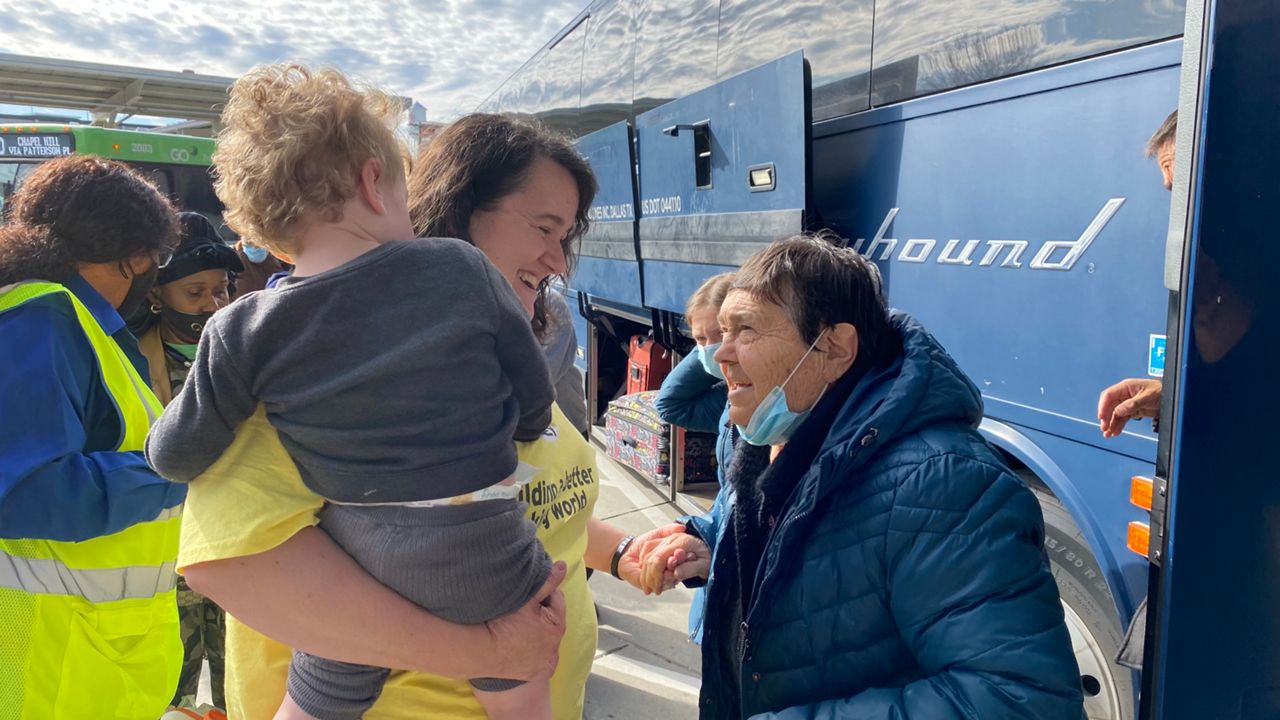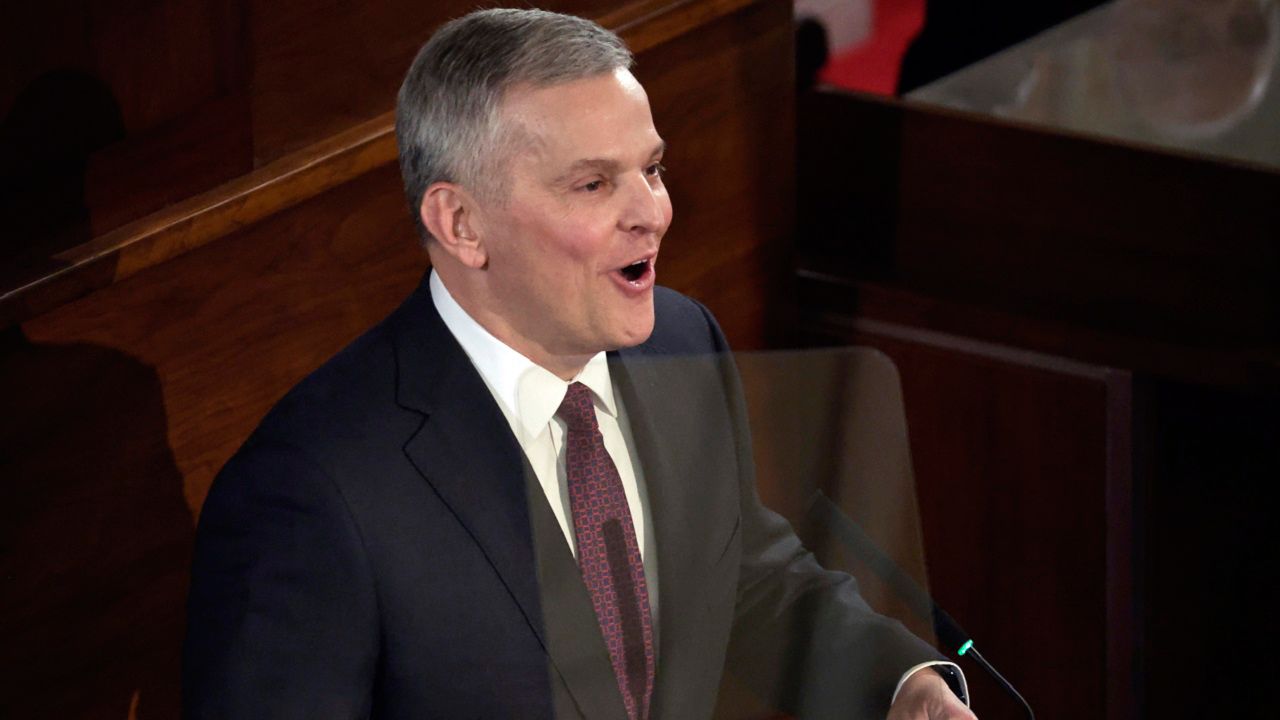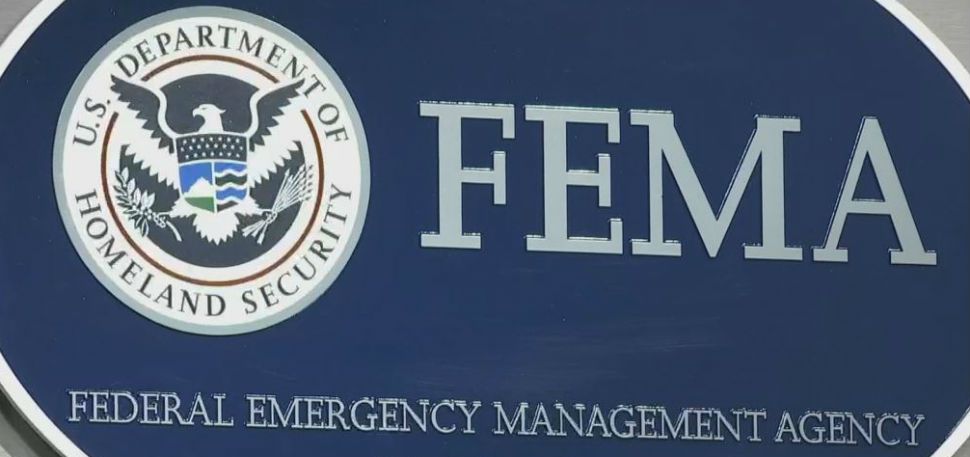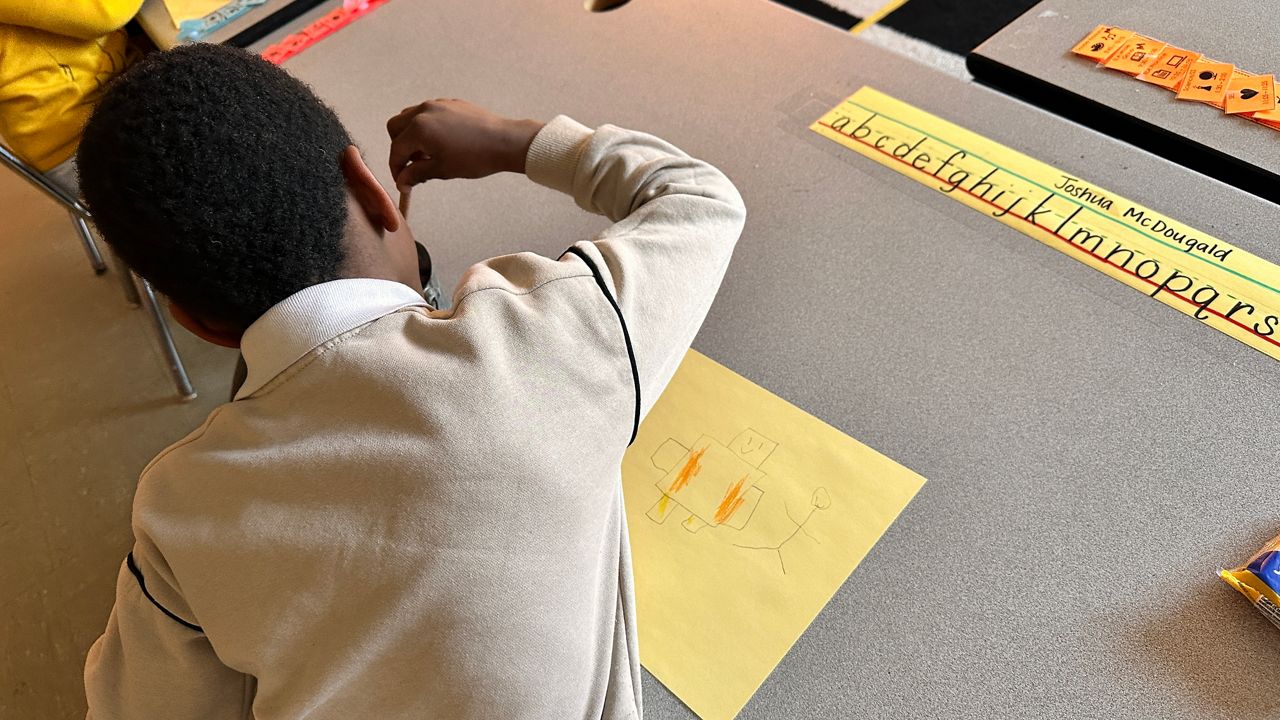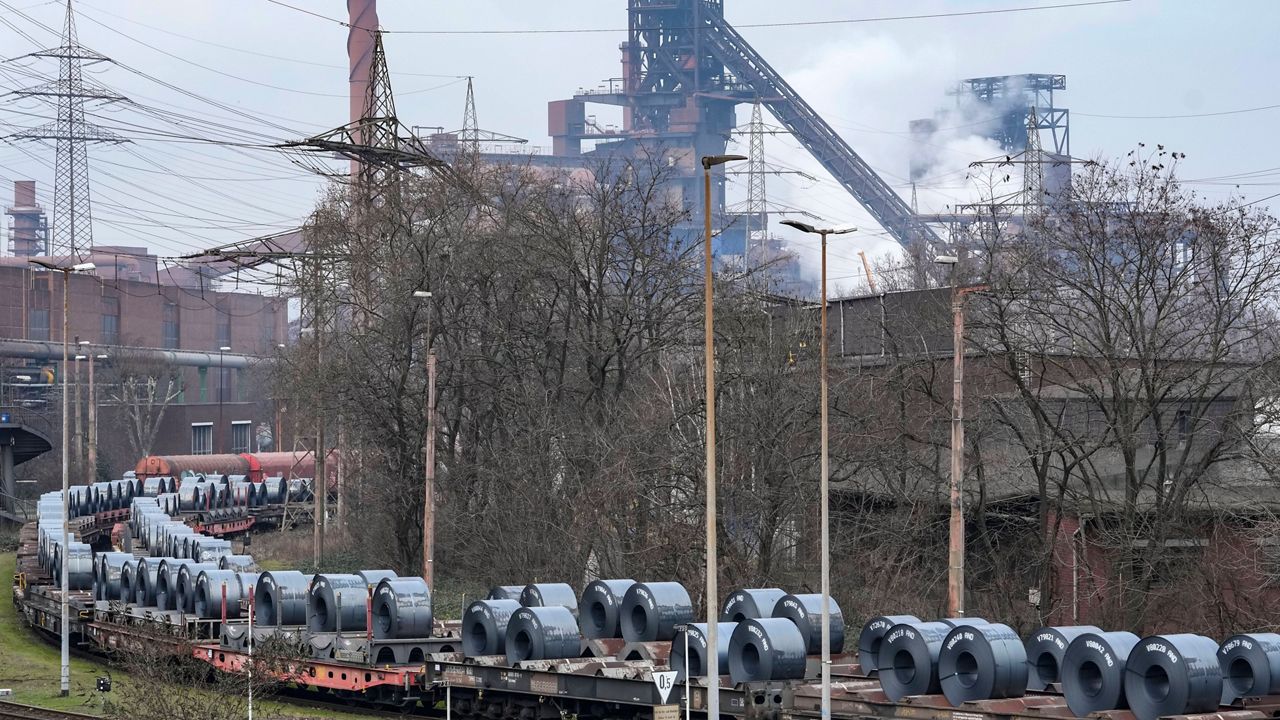DURHAM, N.C. — The Greyhound bus from Brownsville, Texas was running late as Anna Myronova waited for her mother, sister-in-law and grandmother.
It had been a long journey for Vasylyna Halushkevych, 75, from Kyiv, the capital of Ukraine, to Durham, North Carolina. They went from Ukraine to Slovakia, then onto Brussels, to Mexico City and managed to cross the border into the United States in Brownsville, Texas.
The three women are part of the estimated 3 million refugees who have fled Ukraine since the Russian invasion on Feb. 24.
On Thursday, President Joe Biden said he would accept up to 100,000 Ukrainian refugees into the United States. Within hours, Halushkevych and the others were at the border in Mexico to enter the United States as refugees.
When the bombs started falling, Halushkevych was alone in her apartment and had no way to get out, Myronova said. The great-grandmother and her 81-year-old friend spent their nights making Molotov cocktails for volunteer fighters in the neighborhood for four days.
She lived not far from Zhuliany Airport, one of Russia’s first targets in the Ukrainian capital.
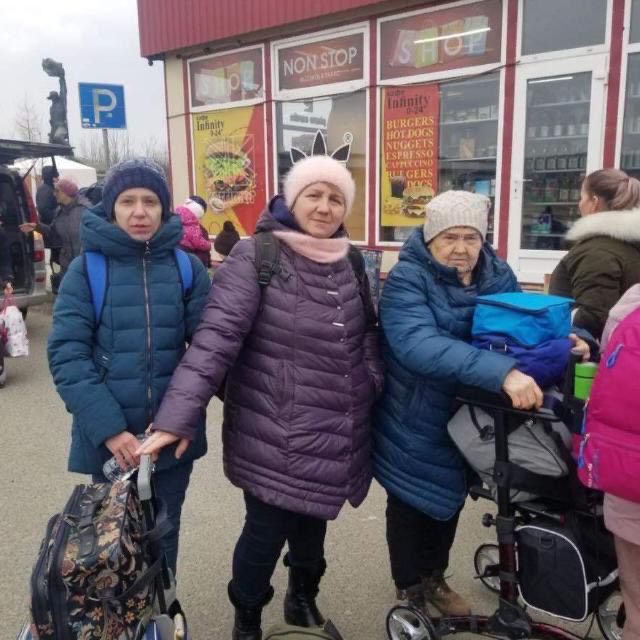
“I could not hear anything because of the bombs and the rocket noise. I could not hear anything for a while, and was just scared and did not know what to do," she said Friday, her granddaughter translating from Ukrainian.
Making Molotov cocktails kept her busy, her granddaughter said, and gave her a purpose. But when they stopped bringing supplies for the two women to help, Halushkevych decided it was time to get out of the city. She had no way out.
“Nobody could get granny,” she said. Russia had already started bombing Kyiv and many roads had been destroyed.
Myronova said she called friends in Ukraine to try to find someone to get her grandmother out. Her friend Andre, the godfather to her 19-month-old son, agreed to pick Halushkevych up. He drove her west, away from the fighting, where she met up with Myronova’s parents.
She left Kyiv with her walker, a bag and just six days worth of her heart medication.
Myronova's mother, 51-year-old Svitlana Noskova, fled with her father from eastern Ukraine, as soon as the fighting started. She said her mother texted her on the first day of the war: “Anna, they drop bombs on us, they drop missiles on us.”
Myronova said her father, a retired soldier, stayed behind in Ukraine to fight. She said her father got her mother to safety and then joined his two best friends, all retired from the military.
“They got their uniforms and boots and went to fight for the motherland,” she said.
Neither Myronova’s grandmother or mother had ever been on an airplane or even left Ukraine before their odyssey as refugees began less than a month ago, Myronova said.
But crossing the Ukrainian border into Slovakia was just the beginning of the journey. From there the three flew to Vienna, Austria, on March 7, and then to Brussels, Belgium.
Volunteers in Brussels brought the three women supplies and homemade soup, and arranged for Halushkevych to visit a doctor to refill her heart medication.
They hoped to get a visa to travel to Canada as refugees, but Canadian immigration officials would not let them on a planned flight to Montreal.
On March 17, they went to the U.S. Embassy. But the U.S. Consulate rejected them too, saying they wouldn’t be allowed in the country on a tourist visa.
On March 18, Myronova’s husband, Michael Hatcher, got on a plane in North Carolina and traveled to Brussels. He helped them get into a better hotel while they figured out what to do next.
From Brussels, they flew to Mexico City, where they were allowed in. Myronova said they considered getting them an apartment in Mexico. But as they were about to rent an apartment for the trio this week, Biden announced the United States would admit 100,000 Ukrainian refugees.
Myronova and her husband talked about it and decided: “Let’s go get them to the border and try.”
So Hatcher drove a rental car to Matamoros, Mexico, and they all walked across the border into the United States so the three could apply to enter as refugees. The border guards let Hatcher in with his U.S. passport but took Halushkevych and Svitlana and Viktoriia Noskova for processing, saying it could take six to eight hours.
But two hours later they emerged, officially admitted to the United States as refugees, Myronova said.
“Welcome to America,” one border guard told the women, Myronova said.
From Brownsville, the party boarded a Greyhound bus, bound for Durham, North Carolina, planning to stay with their family in Chapel Hill.
Myronova was holding her 19-month-old son Michael Hatcher Jr. as her grandmother, mother and sister-in-law got off the bus at about 10 a.m. Friday at the station near downtown Durham. This was the first time Halushkevych had met her great-grandson.
"I didn't even understand that I had arrived. I had only understood it when I saw Anna. When I saw Anna I understood that I did it," Halushkevych said Friday. "I get out of the bus and I see Anna, and I cannot believe that I'm here."
Editor's Note: This article has been updated to reflect the spelling of Vasylyna Halushkevych's last name correctly.




